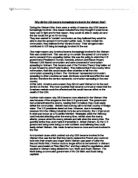Why did the Communists win the Vietnam War?
From 1955, the US became involved in supporting the South Vietnamese government under Diem. South Vietnam soon came under attack by the Vietcong in 1957 as the Vietcong attempted to reunify Vietnam under Ho Chi Minh, the charismatic communist leader of the North. The Vietcong launched a highly effective guerilla war and American fears that the fall of South Vietnam to communism might lead to the fall of Vietnam’s neighbouring countries to Communism as well, whether a result of internal revolution or external aggression, prompted the US to become more and more involved in the war. What was initially a civil conflict escalated into a full-scale war between North and South Vietnam.
In May 1975, the Vietcong forces succeeded in reunifying Vietnam under a communist government. As William Duiker points out ‘the most significant fact about that conflict is not that the United States lost but that the Communists won’. David Steinberg identifies the superiority of North Vietnamese military thought as the paramount factor in contributing towards a communist victory. The communist victory can be attributed to several factors, both political and social, that the United States failed to comprehend and address.
The Vietnamese Communist Party won the hearts and minds of the Vietnamese people and was preferred to the democratic model that the US backed South Vietnamese model tried to impress upon the country. Traditional Vietnamese culture and communism had several basic similarities which made communism easily accepted by the Vietnamese peasants. Both stressed the disdained the pursuit of wealth and discouraged individualism and materialism. Hence many Vietnamese, influenced by Confucianism, did not take to Western capitalism which was ostensibly represented by the merchant class. The merchant class is critical to the success of capitalism and the absence of a prominent merchant class also weakened democracy’s grip on South Vietnam as capitalism and democracy come hand-in-hand. If democracy was represented by the merchant class then communism was represented by the working class which, in agrarian Vietnam, was in turn represented by the rice farmer. In traditional Vietnamese society, the rice farmer was lauded for his humble but important role in sustaining the entire country. Hence, most Vietnamese easily identified with communism.







